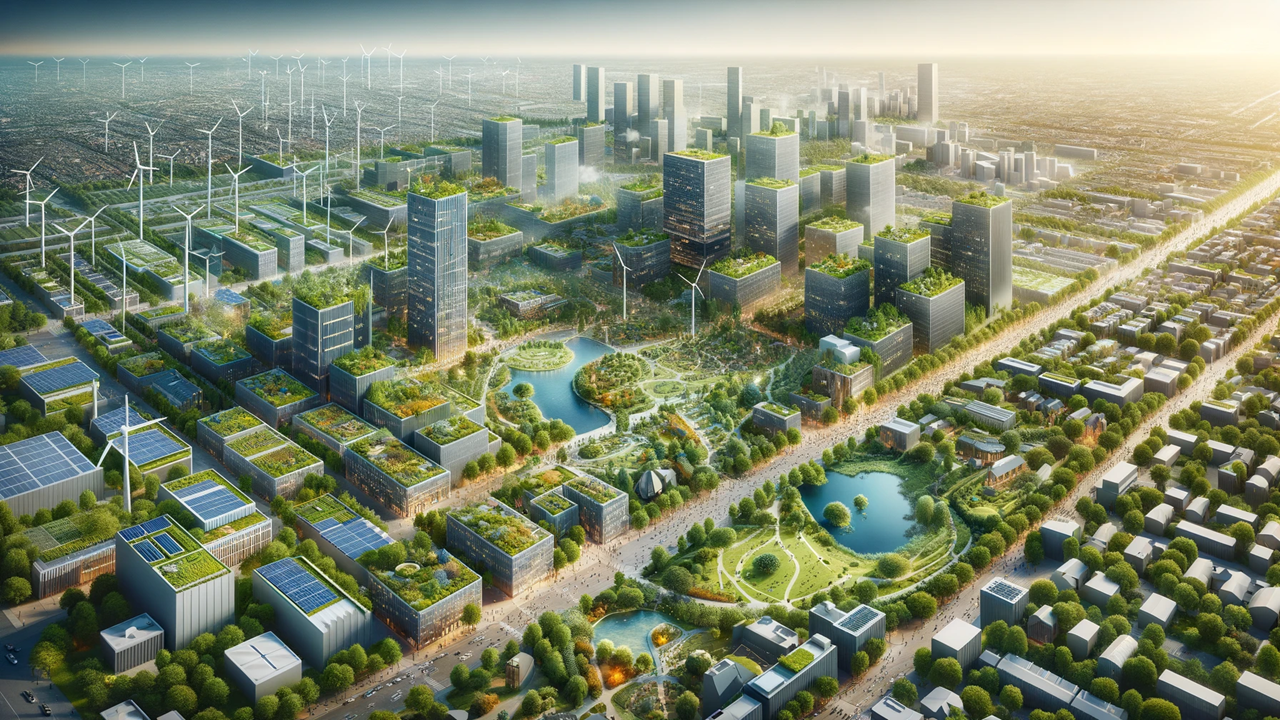Cities of Tomorrow: The UN's Blueprint for Sustainable Urban Development
The United Nations is spearheading a global movement to reshape urban landscapes, emphasizing the need for cities to become bastions of economic growth, innovation, and sustainability. Facing the reality that nearly 70% of the world's population will reside in urban areas by 2050, the UN's call to action focuses on transforming cities into inclusive, resilient, and sustainable environments amidst challenges like climate change, social inequalities, and political polarization.

In an era defined by rapid urbanization and environmental crises, the United Nations has issued a clarion call for sustainable urban development. This initiative is not just a policy recommendation; it's a global imperative to ensure the future viability of urban living. With cities poised to house nearly 70% of the global population by 2050, the stakes have never been higher for transforming urban centers into models of sustainability and innovation.
The Significance of Cities in the Global Ecosystem
Cities are the lifeblood of the global economy and culture, serving as engines of growth and innovation. They offer a unique confluence of human energy, creativity, and diversity. However, this significance comes with substantial challenges, including environmental degradation, social inequality, and infrastructure strain, which necessitate a reimagined approach to urban development.
Challenges Facing Urban Centers
The challenges cities face are multifaceted and interlinked. The climate crisis threatens urban infrastructure and livelihoods, while social inequalities undermine the fabric of city life. Political polarization further complicates efforts to implement sustainable solutions. Addressing these issues requires a holistic and integrated approach to urban planning and development.
Strategies for Sustainable Urban Development
Sustainable urban development hinges on innovative strategies that encompass green infrastructure, inclusive planning, and the adoption of smart technologies. Green infrastructure, such as parks and green roofs, can mitigate urban heat islands and improve air quality. Inclusive planning ensures that all community members, especially the marginalized, have a voice in shaping their cities. Smart technologies offer solutions for efficient resource use and enhanced civic engagement.
Case Studies of Successful Urban Sustainability
Around the world, cities are pioneering sustainable development practices. From Copenhagen's commitment to carbon neutrality to Singapore's smart nation initiative, these case studies provide valuable lessons in resilience, innovation, and community involvement. They underscore the feasibility of transforming urban centers into sustainable living spaces that prioritize the environment, economy, and equity.
The Role of Governance and Policy in Urban Development
Effective governance and policy frameworks are critical to achieving sustainable urban development. Local governments play a pivotal role in implementing policies that reflect the unique needs of their communities, while global cooperation facilitates the sharing of best practices and resources. Collaboration across levels of governance and sectors is essential for driving comprehensive and lasting change.
Engaging Communities and Stakeholders
The path to sustainable urban development is paved with the active engagement of communities and stakeholders. Public participation in planning processes ensures that urban policies reflect the diverse needs of city dwellers. Moreover, partnerships with the private sector can leverage investment in clean technologies and sustainable infrastructure, demonstrating the power of collaborative action.
The Future of Cities: Visions for 2050
Envisioning the future of cities involves projecting a world where urban centers are hubs of sustainability, resilience, and inclusivity. By 2050, the UN aims for cities to embody these principles fully, leveraging technological innovations and green practices to create environments where people thrive in harmony with nature.
How Individuals Can Contribute to Urban Sustainability
Individual action plays a crucial role in achieving urban sustainability. From reducing waste and conserving water to supporting local sustainable businesses and participating in community planning, everyday decisions can contribute to larger urban transformation efforts. Collective action can amplify these individual efforts, creating a groundswell of support for sustainable urban development.
Conclusion: The Path Towards Sustainable Cities
The UN's call for sustainable urban development is a roadmap for the future, guiding cities towards a more resilient, inclusive, and sustainable existence. As we navigate the complexities of urbanization and environmental challenges, this blueprint offers hope and direction. By embracing the principles of sustainability, equity, and innovation, cities can become the foundation for a thriving, sustainable planet, ensuring a better future for all inhabitants.










